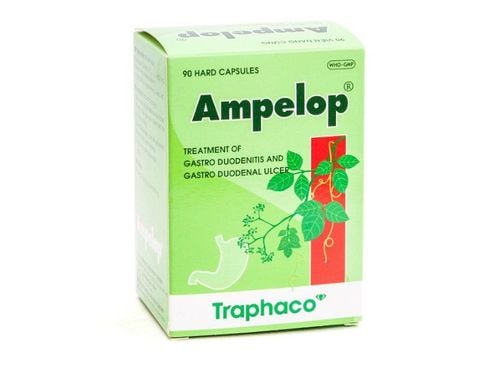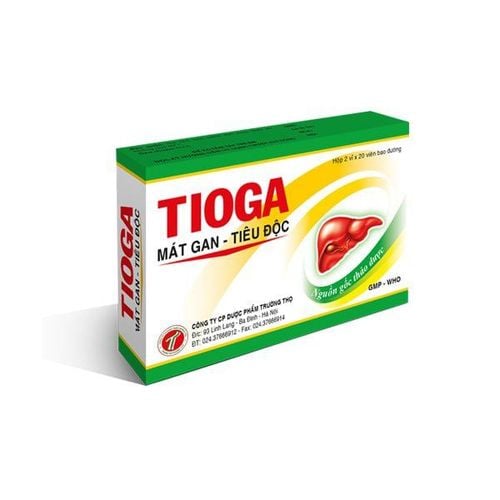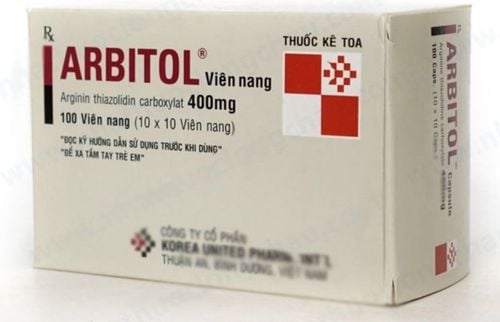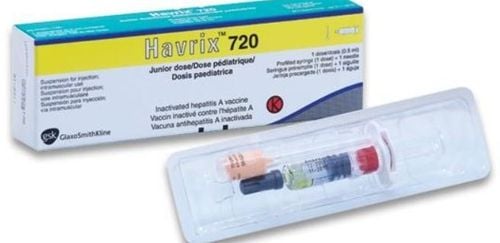This is an automatically translated article.
Euhepamin drug has the main ingredient is Cardus marianus high and B vitamins. Euhepamin is often used in the treatment of liver function.
1. Uses of Euhepamine
Cardus marianus is contained in Euhepamin, the brand name drug with the main ingredient is silymarin, extracted from milk thistle (also known as holy thistle, mother of God, chrysanthemum).
Cardus marianus extract has the ability to inhibit hepatocellular damage, protect the liver and increase liver metabolism by stimulating the ribosomal RNA polymerase system. Therefore, Cardus marianus extract has the effect of detoxifying the liver, reducing the activity of tumour-causing agents, hepatotoxic substances, and resisting the inhibition of DNA and RNA synthesis in the liver caused by radiation.
The uses of vitamins in this drug line are as follows:
Vitamin B1: After entering the body, vitamin B1 is converted into the active form thiamin phosphate, a coenzyme that metabolizes carbohydrates. Vitamin B2 participates in the metabolism of lipids, amino acids and participates in the breakdown of many other substances in the body. Vitamin B5 is a component of coenzyme A, which plays a role in catalyzing the metabolism of starch, fat, and steroid hormones. Vitamin B6: participates in the metabolism of starch, fat, protein, participates in the synthesis of gamma - aminobutyric acid (GABA). Vitamin PP: participates in the metabolism of starch, fat, and protein.
2. Indications and contraindications of Euhepamin
Euhepamine is often used in the following cases:
Supportive treatment to enhance liver function in hepatitis, viral hepatitis, cirrhosis, fatty liver. Detoxify the liver in cases of using chemicals and drugs. Absolutely do not use Euhepamine in the following cases:
Patients with hypersensitivity to any ingredient of Euhepamine Have severe liver disease, peptic ulcer, severe hypotension, arterial bleeding.
3. Dosage and how to use Euhepamine
In order for the drug to be effective and avoid adverse effects, you need to follow the doctor's instructions, do not arbitrarily recalculate the dosage, route of administration or change the duration of treatment. Also, do not give Euhepamine to other people if they have the same symptoms as you.
Dosage: 1 tablet/time x 2-3 times/day. When taking, you need to swallow the tablet whole with a sufficient amount of boiled and cooled water.
In case you miss a dose of Euhepamine, take another dose when you remember, maybe 1-2 hours from the usual time of taking the medicine. If it is almost time for your next dose, skip the missed dose and take the next dose as directed. Do not take a double dose to make up for the dose.
When overdosing on Euhepamine, it is necessary to immediately bring the patient to the nearest emergency center for treatment. Family members should bring all health documents and medications the patient is taking, including oral, injectable, topical, ... to support an accurate and quick diagnosis. Currently, there is no specific antidote for Euhepamine, which can induce vomiting, gastric lavage to remove the drug from the body, symptomatic treatment and supportive treatment for patients.
4. Undesirable effects
In addition to the therapeutic effects that Euhepamin brings, you may also experience adverse effects such as:
Vitamin B1: Rash, urticaria, difficulty breathing, sweating, increased blood pressure, anaphylaxis. However, these undesirable effects are rare. Vitamin B2: Taking high doses of vitamin B2 can cause urine to turn pale yellow, affecting urine tests. In addition, no undesirable effects caused by vitamin B2 were observed. Vitamin B6: Prolonged high doses of vitamin B6 (200mg/day, over 2 months) cause peripheral neuropathy. However, this condition is reversible upon discontinuation of B6. More rarely, nausea and vomiting. Vitamin PP: Taking vitamin PP in high doses can cause some unwanted effects such as: nausea, red face, itching, burning, sharp pain in the skin, stomach ulcers, loss of appetite, vomiting, diarrhea, etc. dry skin, hyperpigmentation, jaundice, liver failure, increased sebum secretion, hyperglycemia, hyperuricemia, headache, blurred vision, low blood pressure, heart palpitations, aggravate gout, ... In addition, you may experience other adverse effects that have not been studied or listed. Therefore, notify your doctor when you have any unusual symptoms while taking Euhepamine.
5. Drug interactions
When treating with two or more drugs, interactions between drugs may occur and affect the absorption, effects and side effects of the drug. Therefore, you need to list the drugs you are using, including prescription drugs, non-prescription drugs, traditional medicines, functional foods, herbs, ... and notify your doctor. Drugs that can interact with Euhepamine drugs such as:
Clopromazine, Imipramine. Levodopa Carbamazepine In addition, alcohol interferes with the absorption of vitamin B2 in the small intestine. Therefore, it is necessary to limit the use of alcohol when taking Euhepamine.
Please dial HOTLINE for more information or register for an appointment HERE. Download MyVinmec app to make appointments faster and to manage your bookings easily.













